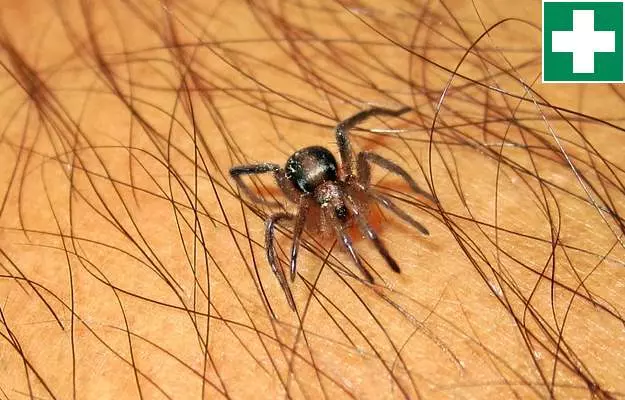Spiders are a type of eight-legged creature called arachnids and are distinct from other insects. A spider bite is also referred to as arachnidism. Not all spider bites are dangerous; however, bites of some poisonous varieties of spiders can be serious and associated with drastic complications if left untreated. The two most dangerous poisonous spiders that bite humans are brown recluse spiders and black widow spiders. If unsure of which spider caused the bite, it is advisable to seek urgent medical assistance at the nearest emergency department. Spider bites can occur outdoors in forested areas or wilderness but are also possible indoors in closed, damp, dusty spaces that do not receive much sunlight as spiders often lay eggs here.
Although it may not be possible to identify the spider that caused the bite, any information that can be provided to the healthcare workers can aid the treatment of the patient. Two of the most dangerous and poisonous spiders are described below:
- Black widow spider: Black spherical body with eight legs and two reddish triangular markings usually joined to form a reddish hourglass shape on the underside of the spider.
- Brown recluse spider: Tan, light to dark brown coloured spherical body with eight legs. A typical dark violin-shaped marking is present on top of the round brownish body.
















